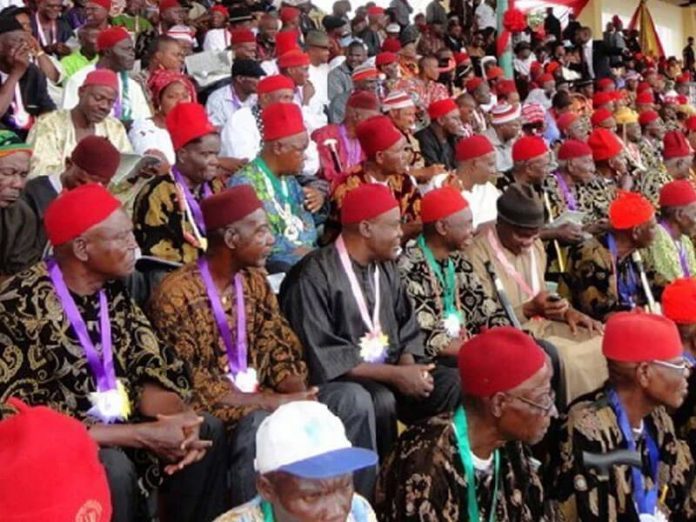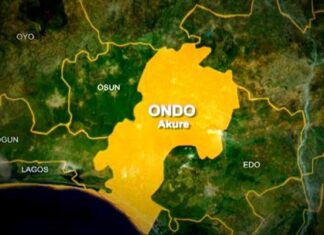By Chijioke Churuba
About 52 years ago, my grandfather passed on. I was told he died because of lack of medical attention and proper care – which were unavailable during the Nigeria-Biafra civil war.
My grandfather, I was told, fell sick during the war and was left alone in our ancestral community as he did not want to risk the lives of other family members who frequently ran and moved from one location to another because of the aerial bombardment.
But then, my grandfather died! My father, I was told, sneaked into our ancestral village, to check on him, and sadly saw his lifeless body! He was dead and cold. My father quickly informed some of his extended family members and my grandfather was hurriedly buried.
He was buried without ceremonies. He was buried without any formal obsequies. He was buried in the strictest silence. And, he was buried in the most restrained emotions in order to avoid the attention of the then enemy’s firepower.
It was only after the civil war that my grandfather, I was told, was properly buried in line with the traditions of our local community.
After his death, Uncle Jude also died. Uncle Jude, I was told, was in his 20s when he was killed during the war. He was never married, and his dead body was never seen or recovered, till date.
He was a young lad who was recruited into the Biafran army and never made it back home. His death, I was told, shocked my father who was very close to him.
The first time I heard of Uncle Jude was as a young lad when I saw an extended family picture, where, his young face was marked “RIP” (rest in peace) with a pen. And, in innocence, I asked, ‘’what happened to him?” And, I was told, “He died during the war.” That mirthless answer made a deep impression on me.
I also remember, one evening, as I sat down with my father, and he shared some of his sad memories and ugly experiences during the war, especially, as a then young volunteer with a Relief Agency with other young volunteers where he helped in the distribution of relief materials to families who were displaced and in desperate need for food.
And with a voice that was deeply suppressed with heavy emotions and with a sad countenance, he said to me: “Ozo emena’’ (never again). That was the first time those two short words presented another meaning and a new image to me.
But, as I reflected on all the ugly incidents around the old Eastern Region of Nigeria and even around the country and the elevated incendiary remarks and genocidal threats of another civil war/destruction of lives and property, I again thought of the true meaning of ozo emena for and to Ndigbo.
I remembered some of the graphic pictures of the young men, women and children who starved and died during the civil war and are still dying needlessly in different places around the old Eastern region and other places in the country.
I thought about the truncated destinies and dreams of those who died. I thought of the anguish of their loved ones – those they left behind – and other unintended consequences.
I once more remembered my grandfather, whom I never met. I remembered Uncle Jude, who was killed in a brutal manner. I remembered my father’s own ugly memories and traumatic experiences as a young relief worker and the personal loss of some of his kinsmen who also died during the war.
I reflected on what ozo emena probably meant to him and my grandfather and how this short prayer is yet to be answered, even after many years.
I thought of the tempestuous history of Ndigbo and how the civil war experience is constantly being rubbed on their faces to threaten, mock and blackmail them.
I thought of the existentiality of being Igbo and how endangered and threatened an average young Igbo person constantly feels in today’s Nigeria. I thought of the struggle of being Igbo and how many, in a bid to survive and be accepted, are tempted to deny and denigrate their Igboness.
I thought of the need to situate this memorial prayer – ozo emena – in Ndigbo’s collective consciousness: A consciousness that would recognize ozo emena not just as a memorial prayer but also as a serious reawakening call for an unwavering strength and resilience even in the midst of sad memories, provoking persecutions and invidious remarks.
A consciousness that would acknowledge ozo emena as an abiding remembrance prayer of hope, faith and collective determination that says, never again.
A consciousness that sees ozo emena as a unifying prayer call that not only invokes emotions or lamentations but also confers immortality to Ndigbo’s peculiar history and stirs up valuable lessons for togetherness and actionable points for their progressive wellbeing.
A consciousness that would faithfully strive for the unapologetic preservation of Ndigbo, their identity and the protection of their lives, businesses and properties and that would pragmatically and relentlessly seek for a just society whose foundations are not anchored on injustice, prejudice, bigotry, hatred, discrimination, intimidation, domination, blackmail, intolerance or violence.
But, a society that rests on equity, fairness, justice, inclusion, fair competition, excellence, industry, prosperity and like Ndigbo would say, a society that rests on biri ka anyi biri, uwa sara ka ute (live and let us live, the world is big enough to accommodate all of us).
A consciousness that abhors helplessness or victim mentality but challenges Ndigbo to overcome persecutions and genocidal baits through impregnable unity and actionable political sagacity.
So, regardless of the bigotry, mockery, insults, intimidation, existential threats and phobia against them, it is important that the true meaning of ozo emena should not be forgotten by Ndigbo and their children who are dispersed across the nations of the world.
Mr Churuba, an economist, retired banker and Managing Consultant, Sprog Consulting Limited, wrote in from Port Harcourt.















